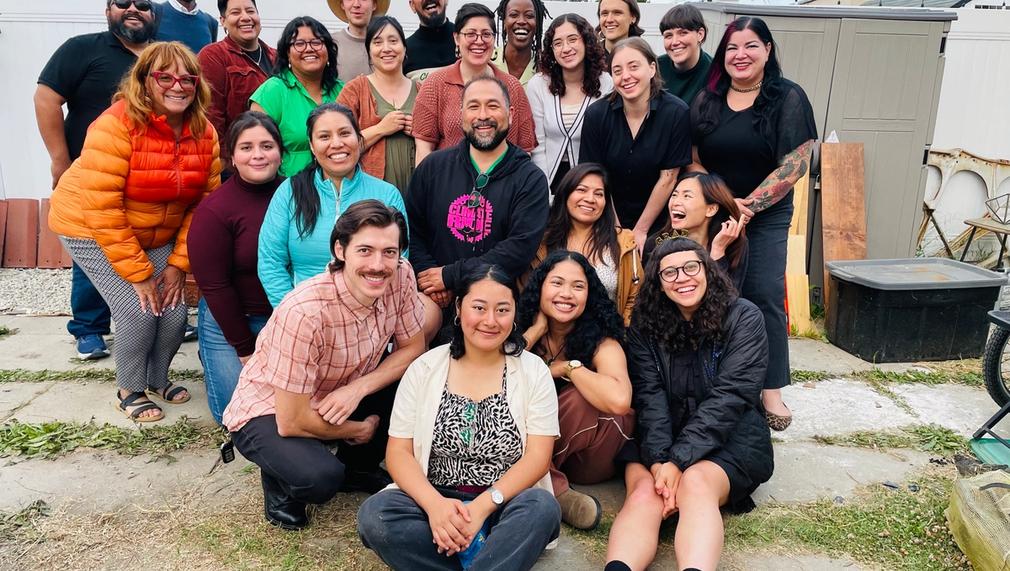Centering Equity and Healing: A Conversation on Safety and Mobility Justice
Organized by local mobility justice community-based organizations (CBOs), these events will engage residents in discussions, workshops, and activities highlighting the intersections of transportation, equity, and safety. By incorporating healing practices, we aim to create a supportive environment where participants can share experiences, build resilience, and foster a sense of community well-being.

What is the primary issue area that your application will impact?
Community safety
In what stage of innovation is this project, program, or initiative?
Pilot or new project, program, or initiative (testing or implementing a new idea)
What is your understanding of the issue that you are seeking to address?
Marginalized populations in LA face challenges accessing safe and equitable options due to overlooked needs. Addressing these issues requires community involvement in developing equity metrics, discussing safety, and promoting inclusive mobility solutions, creating a system that serves all residents, especially the historically marginalized. Develop Equity Metrics: There is a lack of comprehensive equity metrics reflecting the transportation needs and challenges of marginalized populations. Unpack Community Safety: Underserved or over-policed communities have diverse definitions of safety often ignored in mainstream conversations. This gap hampers the development of transportation policies that address their concerns. Promote Inclusive Mobility Solutions: Highlighting and promoting inclusive mobility solutions is necessary to ensure everyone can move safely within their communities.
Describe the project, program, or initiative this grant will support to address the issue.
This project addresses transportation inequities in Los Angeles by developing equity metrics, facilitating community-defined safety discussions, and promoting inclusive mobility solutions. Community-led events with local mobility justice organizations (CBOs) will engage residents through discussions, workshops, and activities on transportation, equity, and safety. Incorporating healing practices, we aim to create a supportive environment for resilience and community well-being. Educational campaigns and pilot programs will test solutions and gather feedback.
Proposed Activities:
Workshops: Gather input on transportation challenges and safety concerns in various neighborhoods, led by local CBOs.
Focus Groups: Understand mobility needs and safety perceptions of seniors, youth, and disabled individuals.
Public Forums: Engage with policymakers and transportation planners on equity metrics and propose solutions.
Educational Campaigns: Raise awareness about mobility justice and community safety through social media, brochures, and meetings.
Pilot Programs: Test mobility solutions based on workshop and focus group findings and gather feedback.
Describe how Los Angeles County will be different if your work is successful.
If this proposal is successful, Los Angeles County will experience transformative changes in its transportation system, leading to a more equitable, safe, and inclusive community. Key anticipated outcomes include:
Expected Outcomes:
Equity Metrics: Community-approved metrics for future transportation planning.
Enhanced Safety: Redefine safety to ensure equitable access to transportation.
Empowered Communities: Increased engagement in transportation decision-making.
Policy Recommendations: Recommendations for local government and transportation agencies.
Successful implementation will make Los Angeles County a model for equitable and inclusive transportation, ensuring safe, efficient, and fair mobility for all residents, and fostering stronger, healthier, and more connected communities.
What evidence do you have that this project, program, or initiative is or will be successful, and how will you define and measure success?
To ensure the effectiveness and impact of our project, our approach will involve the following elements:
Equity Metrics - Measurement: Number of community workshops, participants, and finalized metrics endorsed by CBOs.
Community-Defined Safety - Measurement: Number of conversations and focus groups; integration of community safety perceptions in policies.
Inclusive Mobility Solutions - Measurement: Number of solutions identified and promoted; implementation and feedback from pilot programs.
Educational Campaigns - Measurement: Reach and engagement of campaigns; pre- and post-surveys on awareness.
Pilot Programs - Measurement: Number of programs launched; feedback from participants.
Focusing on these metrics ensures our project aligns with its goals and delivers meaningful outcomes. Regular evaluations will refine our approach and maximize impact.
Describe the role of collaborating organizations on this project.
OSAC Members will collaborate on the project using a committee structure where each partner organization will step up to co-lead on two of the four expected outcomes of the Equity and Community Safety Through Mobility Justice initiative
Equity Metrics Framework: A set of community-approved equity metrics to guide future transportation planning and policy decisions in Los Angeles.
Enhanced Community Safety: A broader understanding and redefinition of community safety that includes safe, equitable access to transportation no matter the zip code.
Empowered Communities: Increased community engagement and empowerment in transportation decision-making processes.
Policy Recommendations: Concrete policy recommendations for local government and transportation agencies to adopt and implement.
Approximately how many people will be impacted by this project, program, or initiative?
Direct Impact: 1,000.0
Indirect Impact: 12,000,000.0